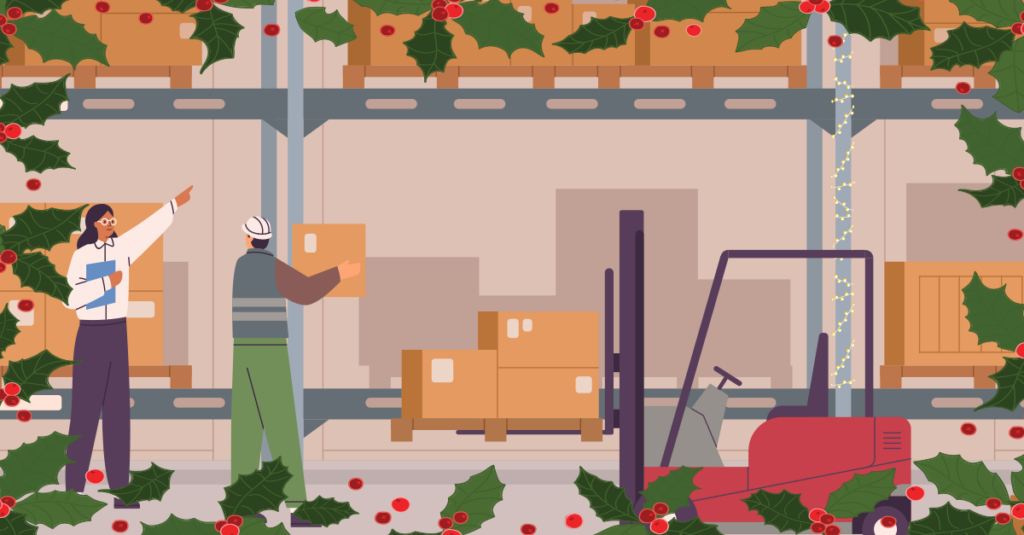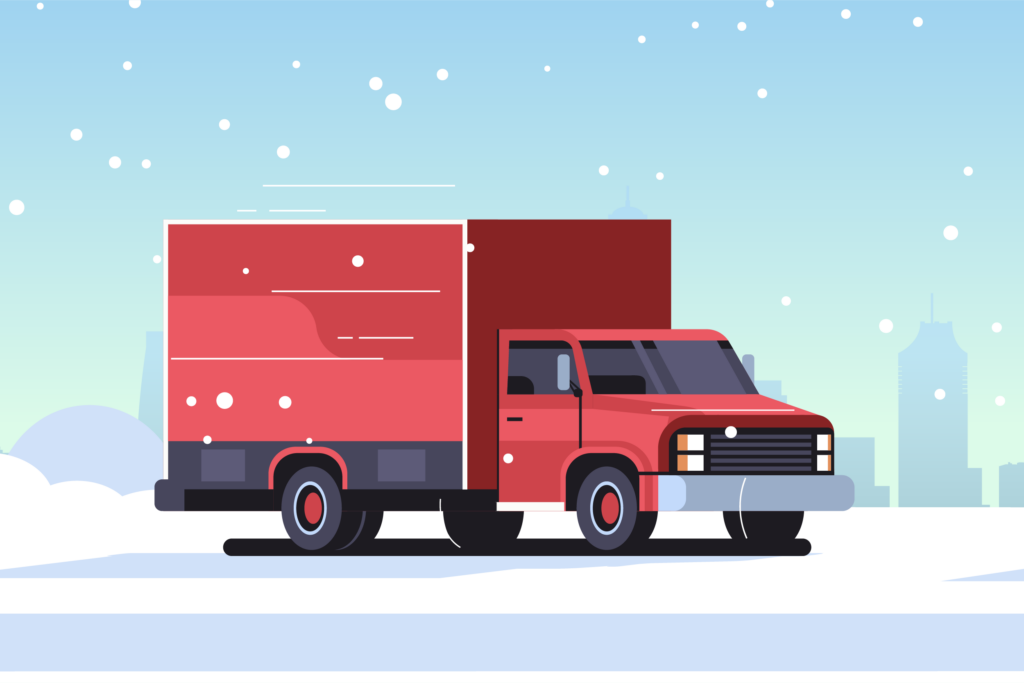Holiday Safety Tips for the Workplace
December 15, 2023

The holiday season, marked by joyous celebrations, brings a unique set of challenges for workplace safety. As weather conditions change and people socialize in smaller spaces, it’s essential to navigate potential hazards and prioritize the well-being of employees. From difficult road conditions to the impact of fatigue and distractions, employers and frontline workers alike must be proactive in maintaining their safety systems.
In this Q&A guide with Intelex VP of Health and Safety Scott Gaddis, we delve into specific safety considerations and insights during the holiday season. Reflecting back on years of experience, Gaddis notes that there was always a spike in injuries and illnesses going into the holidays as workers were eager to take time off and enjoy the festivities, leading to costly distractions.
Let’s explore key questions surrounding workplace safety and discover proactive measures to ensure a safe and joyful holiday season for all.
Julia Guerra Slater: Are there specific safety concerns that arise more frequently during the holiday season?
Scott Gaddis: Yes, indeed. One significant concern is the increase in vehicular accidents, particularly around Thanksgiving, Christmas and New Year’s. There is a notable spike in alcohol-related fatalities, with 49% of fatalities involving an alcohol-impaired driver during the New Year’s holiday period in 2020.
JGS: How can individuals stay safe on the roads during the holiday season?
SG: It’s crucial to be aware of the heightened risk of accidents during this time. Always prioritize safe driving practices and remain vigilant, not just for yourself but also to anticipate and avoid accidents caused by others. According to the National Safety Council, hundreds of people may lose their lives in roadway accidents in the United States during the holiday period.

JGS: What measures can be taken to prepare for winter driving conditions?
SG: Being prepared for winter driving conditions is essential. Consider having a safety kit in your car, including blankets and flares. If you’re in an icy area, drive an AWD or, in heavy snow, use snow tires or chains. Ensuring your car is equipped for potential breakdowns and adverse weather can significantly contribute to your safety.
JGS: Are there specific hygiene considerations that individuals should keep in mind during the holiday season?
SG: Yes, maintaining good hygiene practices is crucial, especially when holiday gatherings and festivities are in full swing. Respiratory Illnesses, like RSV and the Flu, are rising, and we should not forget COVID safe practices. With increased social interactions in smaller, enclosed spaces, there’s a higher risk of spreading illnesses. Individuals should prioritize regular handwashing, use hand sanitizers when necessary, and be mindful of personal hygiene to help prevent the spread of germs.
JGS: How does fatigue impact safety during the holiday season?
SG: Fatigue is a major concern during the holidays. With a heightened number of social activities and potentially longer work hours, people tend to get less sleep. Cognitive processing changes, which leads to increased incidents. Statistics from the National Safety Council reveal that a significant portion of accidents during this period are attributed to tired or distracted drivers. Adequate sleep is crucial, and individuals should prioritize rest, especially if they’re working long hours or irregular shifts.
JGS: Are there specific safety considerations for temporary or contract workers during the holidays?
SG: There are. Temporary workers, often brought in for seasonal demands, can pose unique safety challenges. It’s essential to ensure they receive proper training and supervision. Organizations should meet with vendors to ensure they can meet the safety requirements of the jobs they will be doing. I coach many safety practitioners to treat contracted labor workforces much like they do their own workers since it affects the overall safety performance in the organization. On top of that, lots of contractors speak another language and are not native to the language the organization speaks. That’s when we see communication errors, in addition to competency and skill errors. This situation is ripe for incidents to occur.
JGS: How can mental health and stress impact workplace safety during the holidays?
SG: Mental health and stress are significant factors during the holidays, affecting individuals both personally and professionally. Increased stress levels, combined with the holiday rush, forced overtime and irregular shifts, can lead to distraction, impaired decision-making and potentially unsafe practices. There also tends to be an increase in drug use, alcohol use and suicide rates. Promoting mental well-being and managing stress is crucial for maintaining a safe work environment.
JGS: What role do smart device habits play in workplace safety during the holiday season?
SG: Smart device habits can change during the holidays, potentially leading to increased distractions. Whether due to personal obligations or a relaxed work environment, individuals may be more prone to engaging with their devices. Emphasizing the importance of staying focused on tasks and minimizing distractions is essential for maintaining safety.

JGS: How can employers address the safety challenges posed by increased stress and distractions?
SG: Throughout my career, injuries seem to ramp up during the holiday season because workers want to enjoy their families and friends. They’re not focused on work. Keeping your mind and eyes on the task at hand is a vital element of keeping people safe, and you need to get workers to slow down enough to review the environment and reflect on it, even if they’re working on Christmas Day. That requires reenforcing safe habits. Encourage employees to prioritize their well-being, emphasize the importance of staying focused on tasks, and provide resources for managing stress.
Going into the holiday season, there can be a false sense of security that everything will remain safe. Even if practitioners have created a safe work environment, they need to ensure that frontline workers continue to be mindful of safety during this hectic time of year. Safety culture should be reinforced through training and communications, such as bulletins. By addressing these specific concerns, we can ensure workplace safety during this festive period.
Looking to enhance your safety culture? Watch our on-demand webinar, The Five Elements of a Successful Data-Driven Safety Culture, to learn how data can drive lasting improvements.






